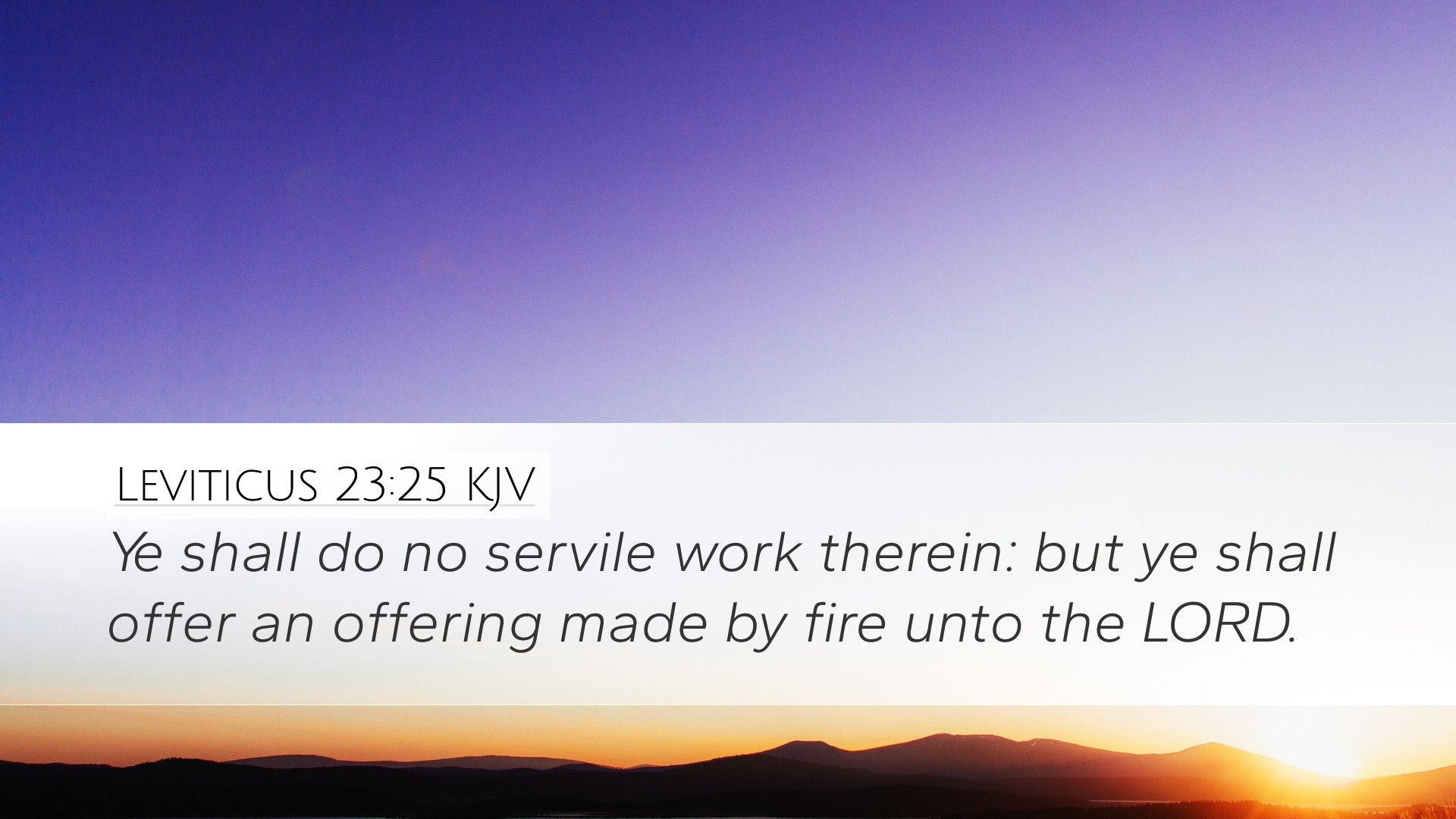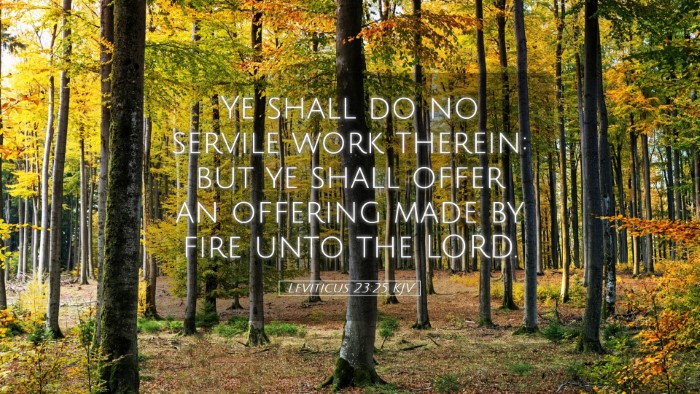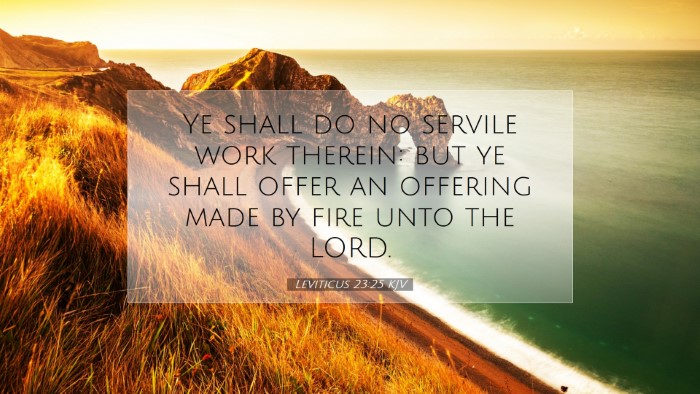Leviticus 23:25 - Biblical Commentary
Leviticus 23:25 states, "And you shall proclaim on the same day that it is a holy convocation. You shall do no customary work on it. It shall be to you a statute forever in all your dwellings throughout your generations." This command does not merely outline a religious obligation but embodies a profound significance for Israel's identity and their relationship with God.
Understanding the Context
This verse appears within the framework of the Mosaic Law, where God delineates specific festivals that are integral to the worship life of Israel. Each appointed time serves a dual purpose: it commemorates historical events of deliverance and redemption while simultaneously foreshadowing greater spiritual truths.
The Significance of the Holy Convocation
The call to gather for a holy convocation emphasizes communal worship and fellowship among the people. Matthew Henry notes that such gatherings were intended to foster unity and devotion among the Israelites, allowing them to honor God together as a body. This assembly is not merely a personal act of worship; it signifies corporate identity and shared faith.
Prohibition of Work
The injunction against customary work reflects God's design for rest and remembrance. Albert Barnes remarks on the importance of ceasing from labor to focus one's attention on divine matters. It is a day consecrated to the Lord, calling individuals to reflect on God's goodness and the covenant relationship they share.
Statute Forever
Leviticus 23:25 mentions a statute forever, indicating that this command is not audience-specific but universal for all generations. Adam Clarke posits that this statute provides an ongoing reminder of Israel's relationship with God. It underlines continuity and steadfastness in worship practices that transcend time and cultural shifts.
The Theological Implications
- Rest in God: The call for rest is a theological representation of trust in God’s provision and sovereignty. It acknowledges that God is ultimately in control, and His people can cease from their labors to recognize His work in their lives.
- Unity in Worship: The communal aspect of holy convocations fosters unity among believers. In Christian theology, this foreshadows the gathering of the body of Christ, emphasizing the importance of fellowship among believers.
- Anticipation of Christ: Several festivals outlined in Leviticus point to Christ. The Day of Atonement, for instance, symbolizes the ultimate sacrifice of Christ, who fulfills the law, thereby rendering some of these statutes in their original form obsolete yet still meaningful in spiritual applications for believers.
Practical Applications for Today
For modern readers, especially pastors and church leaders, this verse encourages the observance of regular gatherings for worship. The concept of a holy convocation takes on new meaning as believers gather in worship services, Bible studies, and fellowship meetings.
- Setting Aside Time for Worship: In an age of busyness, the principle of setting aside time for worship remains crucial. It serves as an opportunity for believers to realign their priorities and focus on God.
- Encouraging Community: Churches should foster environments where congregations can come together in unity to worship, share testimonies, and encourage one another in their spiritual journeys.
- Remembrance of God’s Faithfulness: Observances, whether through festivals, communion, or special services, can serve as reminders of God’s past faithfulness and promises.
Conclusion
Leviticus 23:25 encapsulates key themes of gathering, rest, and remembrance, calling believers to worship God with intentionality and unity. As the church reflects on this text, they are reminded of the eternal significance of holy convocations and the call to lift hearts in worship. In fulfilling these statutes, the church partakes in the historic continuity of faith that began with Israel and finds its ultimate expression in Jesus Christ.


